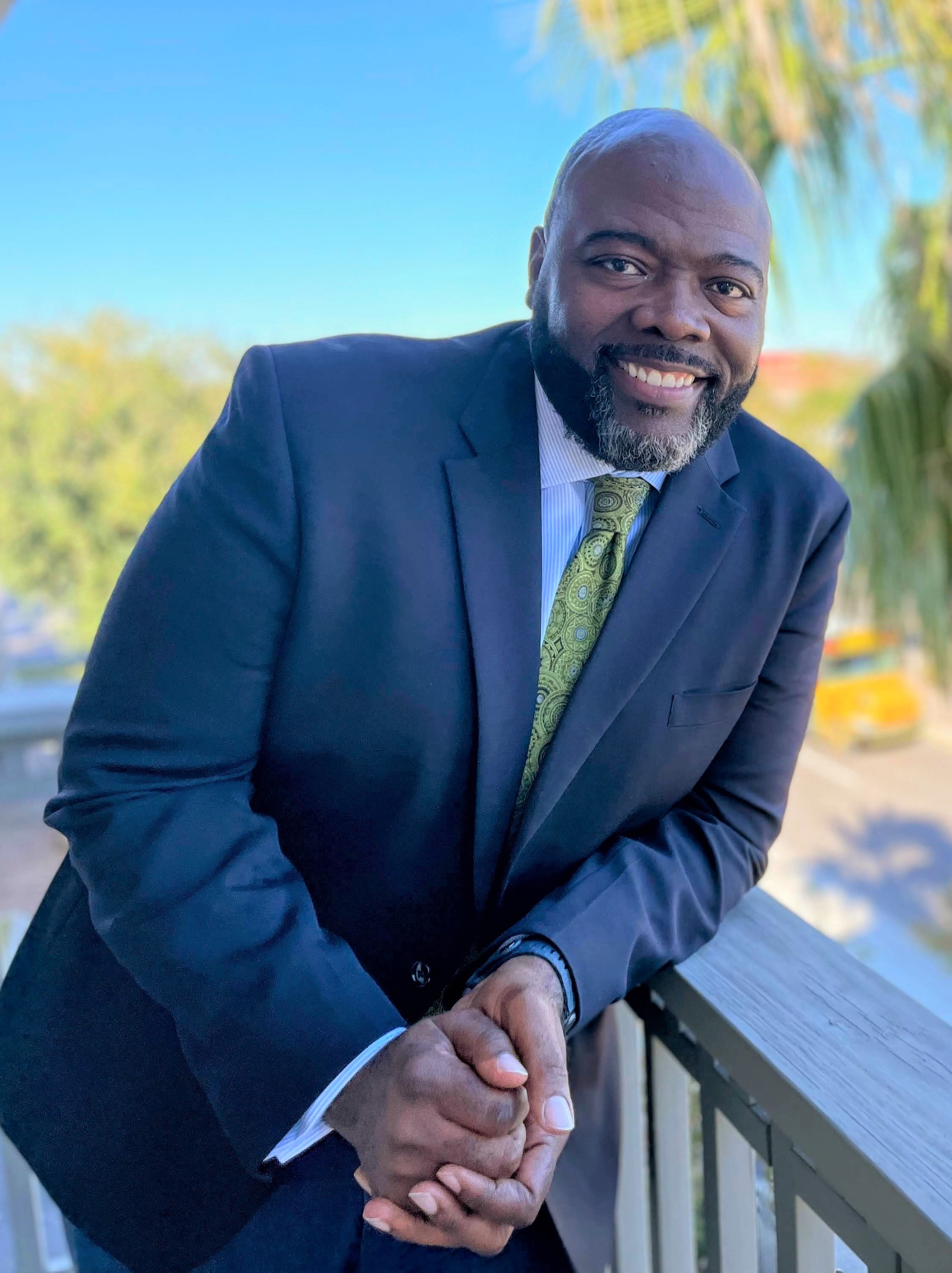Success in Five Months: FOC at Operation New Hope
The Financial Opportunity Center at Operation New Hope, which officially opened its doors earlier this year, is already having a measurably positive impact on the clients it serves.
Operation New Hope, founded in 1999 to help provide second chances to formerly incarcerated individuals, provides wrap-around care through several programs focused on equipping clients to return to the workforce and become productive citizens. Formerly incarcerated individuals face multiple barriers upon their release, the most notable of which include employment, transportation, and housing. The common thread through all of these barriers is financial education and money management. Without which, obtaining – and keeping – housing and transportation are exceptionally difficult when one doesn’t have the knowledge base on how to properly manage the income earned through employment.
 “For us, the Financial Opportunity Center has been a vitally important expansion in our client services,” said Reggie Fullwood, president and CEO of Operation New Hope. “It allows us to better provide holistic support to our clients by helping them with their financial awareness and security. In helping them rebound from their past, financial education is imperative. We started this journey not too long ago, and it has been highly rewarding for us and the clients we serve. LISC Jacksonville, by funding this program, is truly helping support second chances and rebuilding lives.”
“For us, the Financial Opportunity Center has been a vitally important expansion in our client services,” said Reggie Fullwood, president and CEO of Operation New Hope. “It allows us to better provide holistic support to our clients by helping them with their financial awareness and security. In helping them rebound from their past, financial education is imperative. We started this journey not too long ago, and it has been highly rewarding for us and the clients we serve. LISC Jacksonville, by funding this program, is truly helping support second chances and rebuilding lives.”
In March, the Operation New Hope team completed the necessary trainings to operate the new Financial Opportunity Center (FOC). Training is essential to the success of the FOC, which employs a unique model focused on three areas of support: financial coaching, career coaching, and income supports. Financial education services are focused on helping clients better understand how to handle their money, budget, improve their credit scores, and better manage savings and spending habits. The FOCs also help eligible clients identify and pursue public benefits and financial assistance through income support, and career coaching provides job search and readiness assistance as well as employment training – perfectly complementing Operation New Hope’s Ready4Work program.
 “We are very intentional with the ‘three legs’ of support, particularly the financial coaching and income pieces,” said Sytisha Claycomb, chief operating officer for Operation New Hope. “We hired a case manager to lead this effort and provide the one-to-one case management that is so important to individualizing the approach and identifying how to best help each client. We are really able to dive into clients’ relationships with finances – what it means to save, how banks and banking accounts operate, re-acclimating people to spending, how to build credit – all of those areas.”
“We are very intentional with the ‘three legs’ of support, particularly the financial coaching and income pieces,” said Sytisha Claycomb, chief operating officer for Operation New Hope. “We hired a case manager to lead this effort and provide the one-to-one case management that is so important to individualizing the approach and identifying how to best help each client. We are really able to dive into clients’ relationships with finances – what it means to save, how banks and banking accounts operate, re-acclimating people to spending, how to build credit – all of those areas.”
After completing the intake process with Operation New Hope, clients begin a one-year program of services, and on the third week begin the financial education process. Concurrently, clients go through weeks of programming focused on career development, financial literacy, technology usage, and other areas. Their case managers, job coaches, and mental health therapists then stay connected and supportive to clients throughout the year.
“If the mind is not okay, the body doesn’t follow properly,” added Claycomb. “Our mental health services offer group therapy sessions and one-to-one counseling, and we provide access to mental health resources, substance abuse recovery, and other supportive services throughout the entire year. When people are mentally well, they are much more prepared to take responsible actions with their careers, finances, and overall livelihoods.”
Through its Ready4Work program, Operation New Hope has to date successfully enrolled 50 clients in the FOC, or approximately 10 per month. In just this short amount of time, Operation New Hope has already witnessed remarkable success.

“We have one client who got a job, opened a bank account, and has already saved $2,000,” said Claycomb. “Another client, after 20 years of incarceration, finally opened their first bank account. Trust in financial institutions, for many, is a significant barrier, which is why we lean into understanding and helping improve individuals’ relationships with the banking system.”
“We also have a client who recently purchased a car with the money he saved because of what he learned from the FOC,” she continued. “These are just a few examples of how the FOC model truly sets clients up to be even more successful and stand on their own feet financially. With all of these successes in such a short amount of time, we are really rocking and rolling!”
As the Operation New Hope team looks to the future, they are confident in the positive impact they can have on the hundreds of clients they serve every year. “The addition of financial literacy to our services has been phenomenal, as evidenced by the success our clients have already achieved. We are now even more optimistic about the futures of our clients when they complete our program, but more importantly, so are our clients,” added Fullwood.
The FOC at Operation New Hope also benefits from the success and lessons learned from other FOCs in the region, all opened and funded by LISC Jacksonville.
“We gather representatives from our FOCs across the region regularly to talk through best practices, challenges they are facing, client outcome concerns and successes, all of it,” said Dr. Melissa Chester, economic development program officer for LISC Jacksonville. “The collaboration has been very helpful to participants, for both newer and more established FOCs. Obviously the newer FOCs can learn from the experiences of those who have been doing this for years, and the well-established FOCs learn fresh insights from the newer FOCs. Fostering collaboration among our FOCs has helped improve efficiency and results for people all across our region, which is our ultimate goal.”
The FOC at Operation New Hope through LISC Jacksonville was made possible by multiple funders, including The Jim Moran Foundation, DuBow Family Advised Fund, Truist, and Bank of America.
Learn more about the Financial Opportunity Centers here.